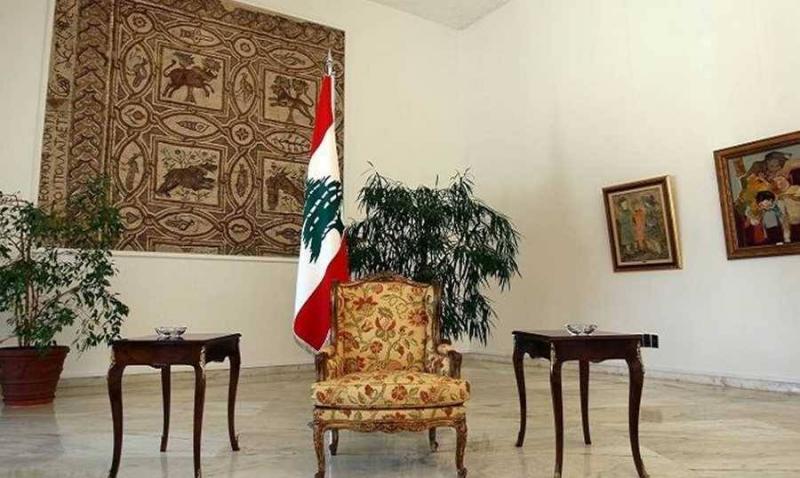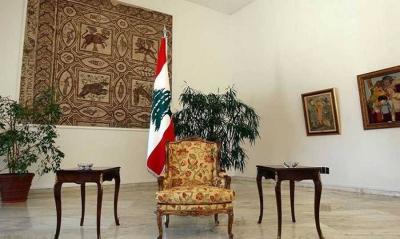Our planet is nearly transforming into a spectacle due to the intensity and plurality of transformations in an era rife with dramatic events affecting the whole world. A titanic war in Ukraine, proxy wars in the east, a right-wing storm sweeping over Europe, the legendary image of Donald Trump captivating America and shaking the world, and quickly turning the page on Joe Biden. It is often said that the world, now astonished by the advancements of artificial intelligence, has long become a small village, and its major conflicts drag their battles across various locations. The Middle East, open to imperial projects, bears the lion's share of the wars that scour the region, deepening its wounds and rendering some of its countries mere spheres of influence, according to "Al-Rai" of Kuwait.
Less than ten months ago, the region was led into a war that its orchestrators did not foresee would reach such a time frame or result in the immense destruction of Gaza, thrusting Lebanon into mortal dangers, and exposing the entire region to reckless adventures that tamper with the destinies of Palestinians, negotiating over their blood both under and above the table, as if they—its orchestrators—had fallen into a trap they intended for others. Gaza remains unshackled, its blood spilled in one of the most horrific genocide crimes in history, with no light shed on the enemy's prisons that have locked away multiple times more Palestinians in its cells, pushing the step towards liberation to regress into an overwhelming occupation of the sector. Turning the table from afar is another matter.
Lebanon, ensnared by a tidal wave of unprecedented crises, did not escape the frenzy after its fate became tied to the course of this war. It has not emerged from the financial pit it has been evading for five years, has not released the kidnapped entitlement for electing a president for nearly two years, and did not withdraw from itself, as its border edges have been devastated while on the brink of catastrophic scenarios. In the salons and behind-the-scenes in Beirut, there are approaches to the scene through witnesses—visitors, diplomats, and observers—who share a deep sorrow over Lebanon smashing records in the race from crisis to crisis, even as figures like Philip Hitti and Kamal Salibi bear witness to the ingenuity of its people in crafting hope despite setbacks.
A prominent Arab source expresses in private discussions deep sorrow for the severe wounds carving into the Lebanese body—financially, economically, politically, and security-wise—and an increasing habit among the Lebanese to squander opportunities: first, to place their country on a straight path of recovery based on foundational reform pillars that authorities have been evading since about a quarter century, particularly since the Paris I Conference and its siblings, not to mention the CEDRE Conference (2018), and up to the preliminary agreement with the International Monetary Fund following the terrible collapse.
Second, to launch the paralyzed governance wheel due to the recurring vacancy in the presidency, which results from a convergence of calculations tying Lebanon to a regional axis with an internal pattern reflecting a waiting behavior from abroad to act on what the Lebanese ought to do, leading to the provocation or summon of Arab and Western interventions and creating a surreal impression closer to condemning capitals for not intervening in the Lebanese reality or imposing their dictates.
Third, to protect Lebanon from the blazing fireball in Gaza and the risks to the country and its people in an adventure reminiscent of the biblical "after me, the flood," amidst astonishing indicators signifying a separation of authorities and even political forces from the terrifying scenarios that cannot be disregarded in light of the Israeli brutality that shows no hesitation in turning Gaza and its inhabitants into an inferno.
The Arab source does not hesitate to invoke what Bernard Émié, then head of the French external intelligence, brought to Beirut in December 2023 after his stop in Israel, where he sensed an absolute madness manifesting in a terrifying target bank he was briefed on, in Gaza and also in Lebanon. The source tells "Al-Rai" that what is dangerous is that everything Émié heard and saw regarding Gaza was prepared and executed, expressing great fear from the defined Israeli targets in any extensive war on Lebanon, summarized by the French intelligence chief's statement that "there will be no safe place in Lebanon from its north to its south."
The source voices concern that the strike on Hezbollah's weapons depot in the Adloun area might be the beginning of pressing buttons on the Israeli target bank, considering that there is another dimension to this strike that opens up possibilities for further displacements, especially since Adloun is located north of Tyre, which hosts a significant number of displaced residents from border villages. One can imagine what deepening Israeli attacks and the resulting humanitarian displacements, particularly if we face a prolonged war, would entail.
As he points to the monitoring underway concerning Benjamin Netanyahu's visit to Washington—whether he will return with the support of Republicans and AIPAC and how this could translate in the field—he notes that Donald Trump has given clear indications in recent days signaling the region in the event of his presidential victory, considering that there is an expectation for the coming weeks wherein it seems that if August passes at the same military pace, one might discuss preventing Lebanon from a broad war; otherwise, not.
In a cold reading, the Arab source mentions that since October 7, Iran and Hezbollah have somehow fallen into a trap and found themselves between the pincers of a dilemma; this axis cannot move forward nor can it retreat, considering that apart from the deterrent and fear equations, Hezbollah, which relied on the parallel economy, is facing its greatest setback in history, with the scene of the destroyed villages along the border speaking for itself, along with the destruction of its infrastructure in those areas, and most importantly, the human cost.
Amid estimates that Trump still has the upper hand in the race for the White House, along with the implications of Masoud Bezhkian winning the presidency in Iran, the same source discusses the next three crucial months in determining major pathways in the region, likely resolving outstanding issues in Lebanon during this period. He maintains that electing Bezhkian reflects within the deep state in Iran a desire for openness, demonstrating a sense of what might come next and the necessity to face it with an approach resembling the period, along with the need to ease the internal situation in Iran, showcasing aspirations for living and welfare that harmonize with visions for the future prevailing in neighboring countries, especially in the Gulf.
The Arab source conveys through "Al-Rai" that this newfound reality in Iran, along with the considerations of the potential return of Trump to the White House, could bolster the possibility of a settlement regarding the presidential file in Lebanon, with signs emerging for a breakthrough that has been indicated in what is communicated about the atmosphere of the Quintet (on Lebanon) regarding its optimism for reaching a solution before autumn or before the U.S. elections.
The source, who has followed the Quintet's discussions and its meetings with Lebanese leaders, relays that there are indications emerging from Hezbollah that a third option is open for discussion, concluding that the presidential file has become more complicated due to tremendous developments, starting from the Gaza war and not ending with the death of President Ibrahim Raisi, alongside the impending U.S. election qualifications, which has led the Quintet to sense that some in Lebanon are betting on the Gaza war and its outcomes and that some are awaiting the American elections and the potential return of Trump.
According to the same source, the Quintet in its foundational structure began with a dual desire: to ensure that the presidential file remains a Lebanese priority and that the group acts as an Arab-international safety net to protect this file from external contradictions, meaning to keep it alive and shield it from external conflicts. However, the roadmap laid out by the Quintet, which it clearly expressed since the Doha statement about the president's qualifications and the core tasks he would undertake, does not imply in any way that the group is concerned with proposing names or imposing any dictates on Lebanon or its people, nor indeed to be part of any management of discussions or dialogue as some have attempted to frame, thus avoiding any signs of guardianship, according to "Al-Rai" of Kuwait.




